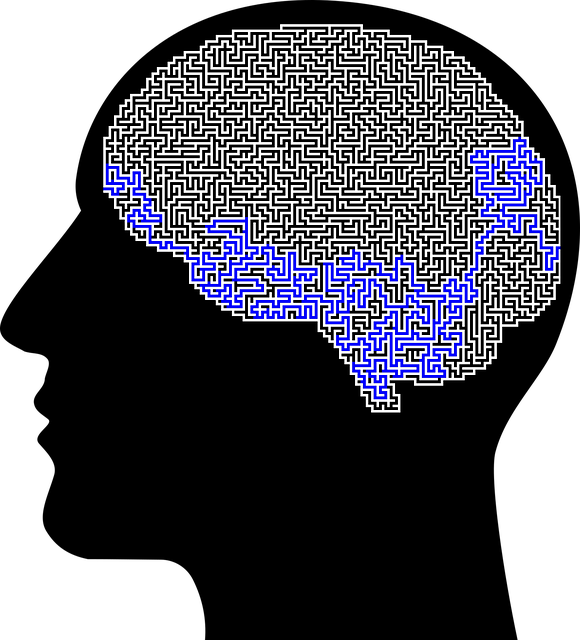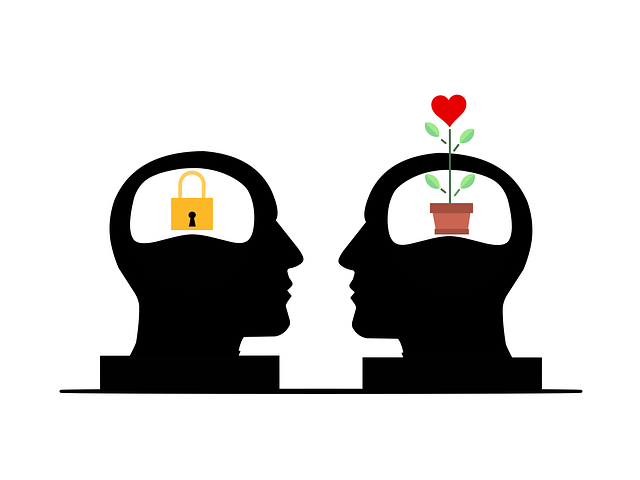Highlands Ranch Suicide Prevention Therapy leads the way in culturally sensitive mental healthcare, addressing a critical gap in professional training. By recognizing diverse cultural perspectives on mental well-being and implementing strategies like empathy-building and traditional healing practices, they enhance therapeutic outcomes. The initiative promotes holistic understanding of mental wellness across cultures, overcoming language barriers and fostering trust through tailored mood management techniques. Mental Health Policy Analysis and Advocacy plays a vital role in funding these programs, ensuring accessible, culturally competent care for all.
In an increasingly diverse society, cultural sensitivity in mental healthcare is paramount. The article explores the nuanced landscape of providing effective therapy while respecting and understanding varied cultural backgrounds. We delve into the challenges faced by practitioners, from language barriers to unconscious biases, and present strategies for creating inclusive environments that foster healing. For residents of Highlands Ranch seeking suicide prevention therapy or other mental health services, culturally sensitive care can significantly enhance outcomes and accessibility.
- Understanding Cultural Diversity in Mental Healthcare
- Challenges and Barriers to Culturally Sensitive Practice
- Strategies for Providing Inclusive and Effective Therapy
Understanding Cultural Diversity in Mental Healthcare

In the diverse landscape of mental healthcare, understanding cultural diversity is paramount to delivering effective treatment. The practice of Highlands Ranch Suicide Prevention Therapy recognizes that individuals from different ethnic, racial, and cultural backgrounds may have unique perspectives on mental health and well-being. This awareness is crucial when adapting therapeutic approaches to meet the specific needs of each client. By embracing cultural sensitivity, healthcare providers in Burnout Prevention Strategies for Healthcare Providers can create a more inclusive environment, fostering trust and encouraging open communication.
Mental Health Policy Analysis and Advocacy plays a significant role in promoting cultural competency within the industry. Through policy development and implementation, advocates push for services that are responsive to diverse communities. Additionally, Mental Wellness Coaching Programs Development offers strategies to support both clients and providers, ensuring everyone involved in mental healthcare is equipped to navigate cultural differences with empathy and respect. These initiatives collectively contribute to a more holistic understanding of mental wellness across various cultural contexts.
Challenges and Barriers to Culturally Sensitive Practice

In the pursuit of providing culturally sensitive mental healthcare, particularly in diverse communities like Highlands Ranch Suicide Prevention Therapy, several challenges and barriers must be addressed. One significant obstacle is the lack of cultural competence training for healthcare professionals. This can lead to misunderstandings and miscommunications between therapists and clients from different ethnic backgrounds, hindering the therapeutic process. For instance, cultural norms regarding expression of emotion, family dynamics, and concepts of mental health itself can vary widely, requiring therapists to be attuned to these nuances.
Moreover, language barriers pose a significant challenge, making it difficult for clients to express their feelings accurately and for therapists to provide culturally appropriate care. This is where empathy-building strategies become crucial. Mental Health Policy Analysis and Advocacy plays a pivotal role in ensuring that policies support diverse communities by funding programs focused on cultural sensitivity training and accessible healthcare services. Effective mood management techniques, when tailored to consider these cultural differences, can significantly enhance therapeutic outcomes, fostering an environment of trust and understanding.
Strategies for Providing Inclusive and Effective Therapy

In providing inclusive and effective therapy, mental healthcare professionals must adopt strategies that embrace cultural sensitivity. This involves actively listening to and understanding clients’ backgrounds, values, and beliefs, which can significantly impact their emotional regulation and coping mechanisms. By creating a safe, non-judgmental space, therapists encourage open communication, fostering trust and strengthening the therapeutic alliance. Incorporating culturally relevant techniques, such as incorporating traditional healing practices or addressing intergenerational trauma, can enhance engagement and treatment outcomes.
Highlands Ranch Suicide Prevention Therapy prioritizes these strategies to serve a diverse clientele effectively. Mental health professionals are trained in risk assessment for mental health professionals, enabling them to identify and address warning signs while respecting clients’ cultural contexts. Additionally, they employ conflict resolution techniques that consider emotional regulation, ensuring every individual receives personalized care tailored to their unique needs and cultural identities.
Incorporating cultural sensitivity into mental healthcare practice is essential, especially in diverse communities like Highlands Ranch. By understanding and addressing cultural differences, therapists can create inclusive environments that effectively support individuals from various backgrounds. Overcoming challenges such as language barriers and stereotyping is crucial for providing quality care. Implementing strategies like cultural competency training and adapting therapeutic approaches ensures that everyone receives the compassionate and sensitive help they need, ultimately improving outcomes in suicide prevention efforts across the board.












